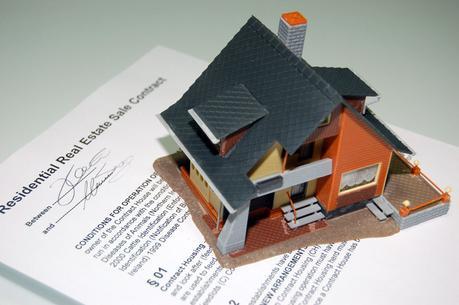Property is one of the most popular investment options in the United States. Investors love the tangible nature of real estate, its immediate returns, and its sound prospects for long-term growth. However, investing in real estate doesn’t suit everybody. Consider the following points to help you decide whether you’re ready for your own investment property.
Landlords Have Serious Responsibilities to Their Tenants

Image via Flickr by MarkMoz12
Unlike shares or bonds, real estate is a hands-on investment choice. You have certain responsibilities to your tenants that you must take seriously.
Your key responsibility is providing a safe and functional living space for your tenants. You must make sure your investment property meets local and federal housing codes before your tenants move into their buildings. You’re also required to repair fixtures and major appliances that break in the property once tenants are living on-site. Typically, you should respond to repair requests within 24 hours and fix problems in a timely fashion.
If those responsibilities sound too much like hard work, you could hire a property management company. A property manager will assume most of the duties associated with being a landlord, from finding tenants to maintaining the property. However, these services will take up roughly 10 percent of your rental earnings. You’ll need to consider carefully whether conveniently outsourcing property management is worth sacrificing some of your investment income.
Failure to meet your obligations can result in your tenant withholding rent or, in severe cases, taking legal action or breaking a lease.
Tenants Can Damage Your Property
We’d all love to rent to tenants who treat our investment properties like their own homes. Many tenants do, but a few bad apples can spoil the bunch and put your property at risk. The internet is full of horror stories about rental properties with burned carpets, holes in walls, and trashed fixtures.
Careful screening of tenancy applicants and regular property inspections should lower the risk of major property damages. Your landlord home insurance policy will also help you recoup some of the costs you could incur. But once damage occurs, you could spend a substantial amount of time and money to make your investment property livable again. Hopefully, your tenants will be delightful, but you should consider the chance that you might end up with destructive renters.
Owning an Investment Home Could Qualify You for Tax Breaks
Being a landlord can be time-consuming and frustrating at times, but you can experience some unexpected perks. You might not realize that landlords qualify for some amazing tax breaks. For example, you could get a tax deduction each time you add, repair, or replace a major appliance in your rental property. These deductions can help offset the impact of depreciation of appliances so that you can install a new HVAC system at your investment property, for example. In addition, these deductions can also help you get higher rents and increase your property’s value.
Real estate investment won’t suit everybody, but if you’ve researched your obligations and the pitfalls of property ownership, you can make an informed decision about whether this type of investment is right for you.
**

